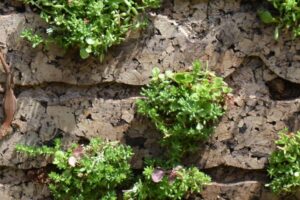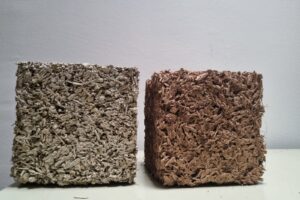BEACON: Design and construction of a proof of concept of LIDAR for its use in autonomous underwater vehicles
January 30, 2024
6G-EWOC: Artificial intelligence and 6G technologies to achieve safe, more interconnected mobility
January 30, 202430/01/2024
The technology of the CP4C project, based on hydrogels treated with plasma gas, is being developed by the team of researchers at the PlasmaMedLab and the Biomaterials, Biomechanics and Tissue Engineering Group (BBT) of CREB at the UPC. CP4C is one of the University projects that has obtained a grant from Barcelona Deep Tech Node to accelerate its launch on the market.
Participants in the project are the Plasmas for BioMedical Applications laboratory (PlasmaMED Lab), which is part of CREB’s Plasmas for Biomedical Applications division of the Biomaterials, Biomechanics and Tissue Engineering Group (BBT) at the UPC. The project is based on developing a treatment for osteosarcoma through plasma-treated liquids (PTL). It has been found that PTLs can kill cancer cells due to the reactive oxygen and nitrogen species (RONS) that they contain. Unlike the side effects produced by chemotherapy, at adequate doses, RONS induce the death of tumour cells without damaging healthy tissues. RONS can be generated in liquids and in hydrogels (PTH) that are injected locally into tumours to achieve controlled release.
Through these hydrogels, in combination with ceramic materials such as calcium phosphates, a composite material is obtained that eliminates cancer cells due to the action of the RONS and promotes bone regeneration.
The solution is therefore a less aggressive, highly efficient innovative therapy to eradicate bone cancer, with the possibility of regenerating the bone tissue that is affected after surgical resection of the tumour. The anti-cancer potential and safety of treatments with PTL/PTH has been demonstrated in vitro and in vivo. Through CP4C, the aim is to advance in the validation of technology in in vitro environments and in relevant in vivo preclinical animal models, following the guidelines of the corresponding regulatory agencies.
Accelerating technological development
Barcelona Deep Tech Node is a partnership to promote technological and innovative projects between Barcelona City Council, through Barcelona Activa, and the University of Barcelona (UB), the Autonomous University of Barcelona (UAB), the Pompeu Fabra University (UPF) and the Open University of Catalonia (UOC), in addition to the UPC. Since the start of the initiative, a hundred projects and spin-offs from universities and research centres have participated in events, investment forums or mentoring sessions. ‘Proof of Concept’ grants of 225,000 euros provide access to funding for selected projects, accelerate their technological development and cut the time it takes for them to reach the market. In addition, these grants will enable crucial actions to be designed for science and technology-based projects, such as undertaking market studies, formalising patents or presenting projects to investment forums, among others.

Related Projects
- A research team from the inLab FIB at the Universitat Politècnica de Catalunya - BarcelonaTech (UPC), together with the Asociación de Personas con Movilidad Reducida (AsoPMR), has taken part in the Spot4Dis project to enhance the mobility and autonomy of people with reduced mobility.
- The La Volta project foresees the construction of a large Catalan vault pergola within the Llars Mundet campus, in the Montbau neighbourhood (Horta-Guinardó district). This structure will become a new architectural landmark for Barcelona, combining traditional construction techniques with contemporary innovation. The project involves the Rehabilitation and Architectural Restoration Research Group (REARQ), at the Universitat Politècnica de Catalunya - BarcelonaTech (UPC), and is led by the Architects’ Association of Catalonia (COAC) and the Barcelona Provincial Council.
SATE-VEG: A system for energy renovation of buildings that helps reduce the urban heat island effect
Researchers from the Architecture, Energy and Environment (AiEM) group at the Universitat Politècnica de Catalunya - BarcelonaTech (UPC) have developed SATE-VEG, an external thermal insulation system with a vegetal coating that offers seasonally adaptive thermal behaviour, enhances urban biodiversity and promotes positive health effects. The system is made from organic materials, requires low maintenance and consumes minimal water.- A research team from the Interdisciplinary Group on Building Science and Technology (GICITED) at the Universitat Politècnica de Catalunya – BarcelonaTech (UPC) is leading the BioSAFE project, which aims to develop sustainable building envelopes —mainly façades— designed according to sustainability, comfort and safety criteria, with particular attention to their acoustic behaviour and fire performance.




